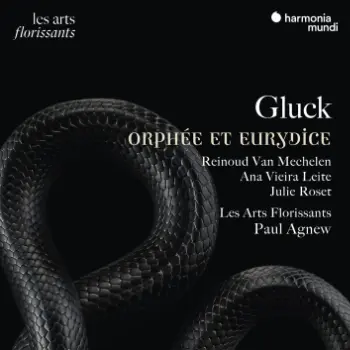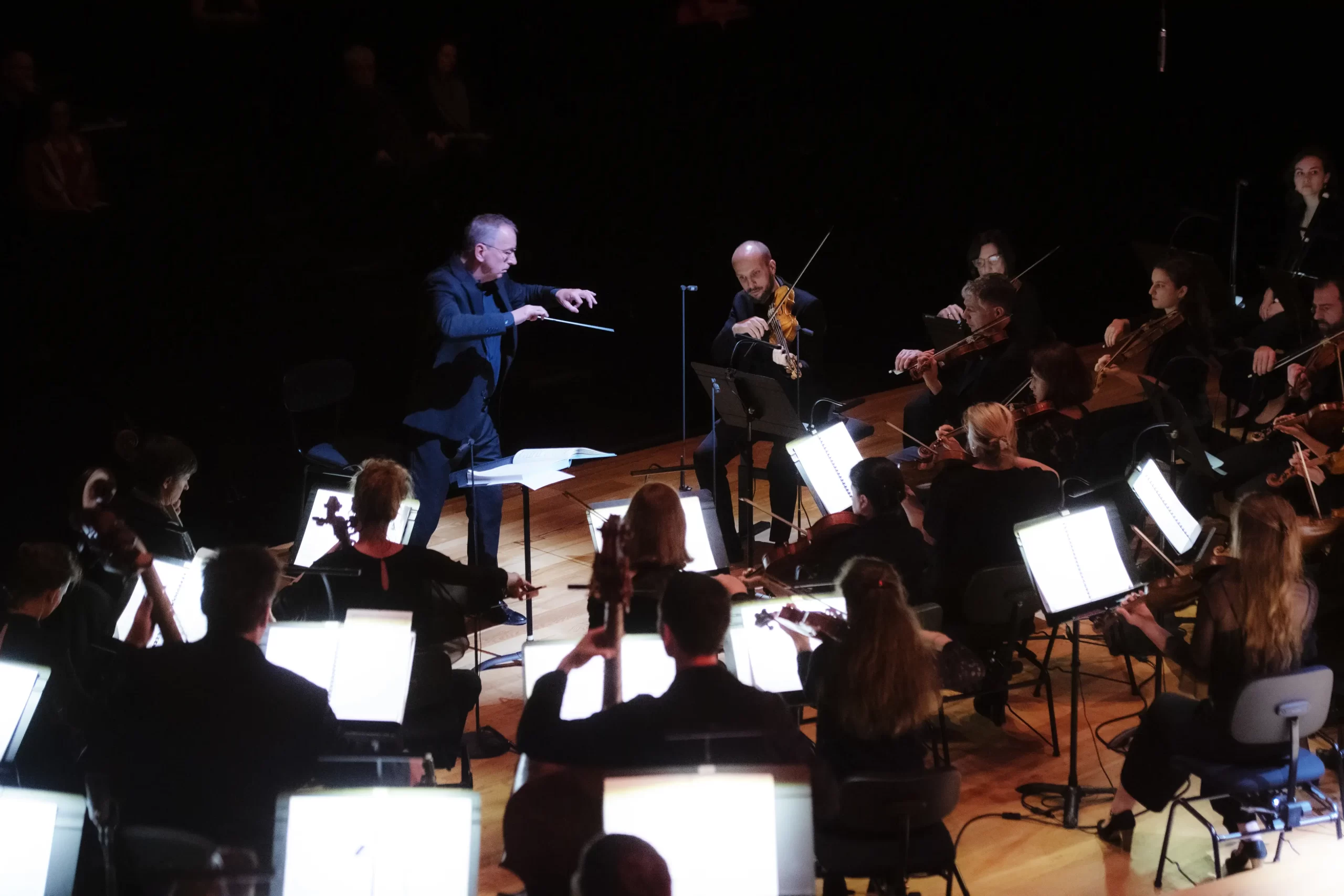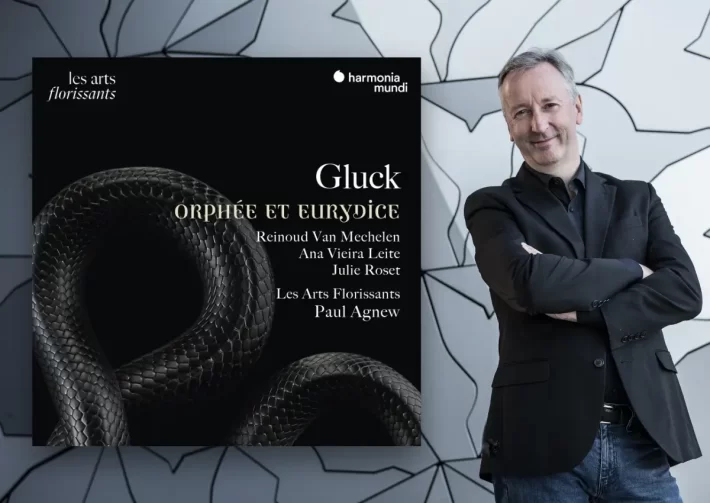Last year I was thrilled by a new recording of this opera, which appeared on Erato and features Jakub Józef Orliński’s riveting portrayal of Orpheus (review). That performance uses the 1762 Vienna version, whereas this new release uses the 1774 Paris version. The 1762 version (in Italian) was tailor-made for the famous alto castrato Guadagni, and Ranieri de Calzabigi’s libretto stripes the myth down to its dramatic essence, inspiring some of Gluck’s most imaginative and emotional music. Despite its brevity (most performances are under 90 minutes), it packs an emotional wallop.

The 1774 Paris version is far different; its text translated into French by Pierre Louis Moline. Much of the music is reworked for Joseph Legros, a ‘haute-contre’ (a specialized high tenor that normally sang the heroic roles in French opera). Legros was especially admired for his brilliant and flexible high register (less so for his acting). The score includes a significant amount of new music, such as a bravura aria to end the first act and a demanding trio for the third. Orchestration is enlarged and simplified because the hall, and its orchestra, was larger. Most of the new written music is ballet, and I am not the first to argue that it negatively affects the dramatic pacing and emotional power of the work.
The catalogue has two period instrument recording: Les Musiciens du Louvre led by Marc Minkowski (Archiv) and Opera Lafayette Orchestra led by Ryan Brown (Naxos). Readers wanting the 1774 Paris version surely will want all the music, yet Brown cuts the “Tendre amour” trio and final ballet, eliminating over 20 minutes of music. And despite some impressive playing from the orchestra, Jean-Paul Fouchécourt’s Orphée seems emotionally detached – rarely does one sense the emotional connection that makes Orliński’s assumption so compelling.
Minkowski’s recording is, as anyone who knows this conductor would expect, vividly dramatic. First released in 2004, reviews were almost uniformly enthusiastic, praising the fiery interpretation (of the complete score) and excellent pacing by Minkowski, as well as the fine singing of Richard Croft (Orphée) and Mireille Delunsch (Eurydice). In terms of period instruments and pitch, as well as completeness, Minkowski’s album is the only true competition to this new release.
Paul Agnew’s pacing is not as masterful as Minkowski – there were moments, especially in the first act’s ballet music, that I found my attention wandering. But Les Arts Florissants (orchestra and choir) is more than a match for Minkowski’s Les Musiciens du Louvre. The sound of Minkowski’s ensemble is more heterogenous: the brass snarl more, the strings have more weight (because there are more of them). But the sophisticated finesse of Les Arts Florissants proves just as rewarding, and the solo work (especially the flute in Ballet des Ombres Heureuses (Act II, Scene 2) is ravishing. Harmonia Mundi’s engineering is also better, with as much warmth as Archiv achieves for Minkowski, but with greater clarity.

image: ©️ William Beaucardet
If Reinoud van Mechelen’s Orphée is more introverted on this new performance, less heart-on-sleeve than Richard Croft for Minkowski, his singing is superior: listen to the clarity of the melismatic writing in the newly added aria that closes out Act I, and his superb high notes in the cadenza. We really experience his grief when he loses Euridice a second time, and the joy he feels when she is brought back at the end of the opera. One must mention that the 25 minutes of ballet music after the final chorus, “L’Amour triomphe,” is terribly anti-climactic.
Ana Vieira Leite’s tender and yearning Eurydice is beautifully sung and her chemistry with Mechelen makes the life and death struggles of the final act more vivid. Julie Roset’s Amore is sweetly sung and acted, without eclipsing Fatma Said’s portrayal on the Orliński/Erato recording.
With excellent liner notes, and full texts and translations, this recording supplants Minkowski’s as the best all-around period performance of the 1774 Paris version.
Recommended Comparisons
Minkowski | Hogwood | Gardiner | Plewniak
Top image credit: ©️ Oscar Ortega

Album Details |
|
|---|---|
| Album name | Orphre et Eurydice |
| Label | Harmonia Mundi |
| Catalogue No. | HAF890540102 |
| Artists | ORPHÉE – Reinoud Van Mechelen, Tenor EURYDICE – Ana Vieira Leite, Soprano AMOUR – Julie Roset, Soprano Les Arts Florissants Paul Agnew – Conductor |


















